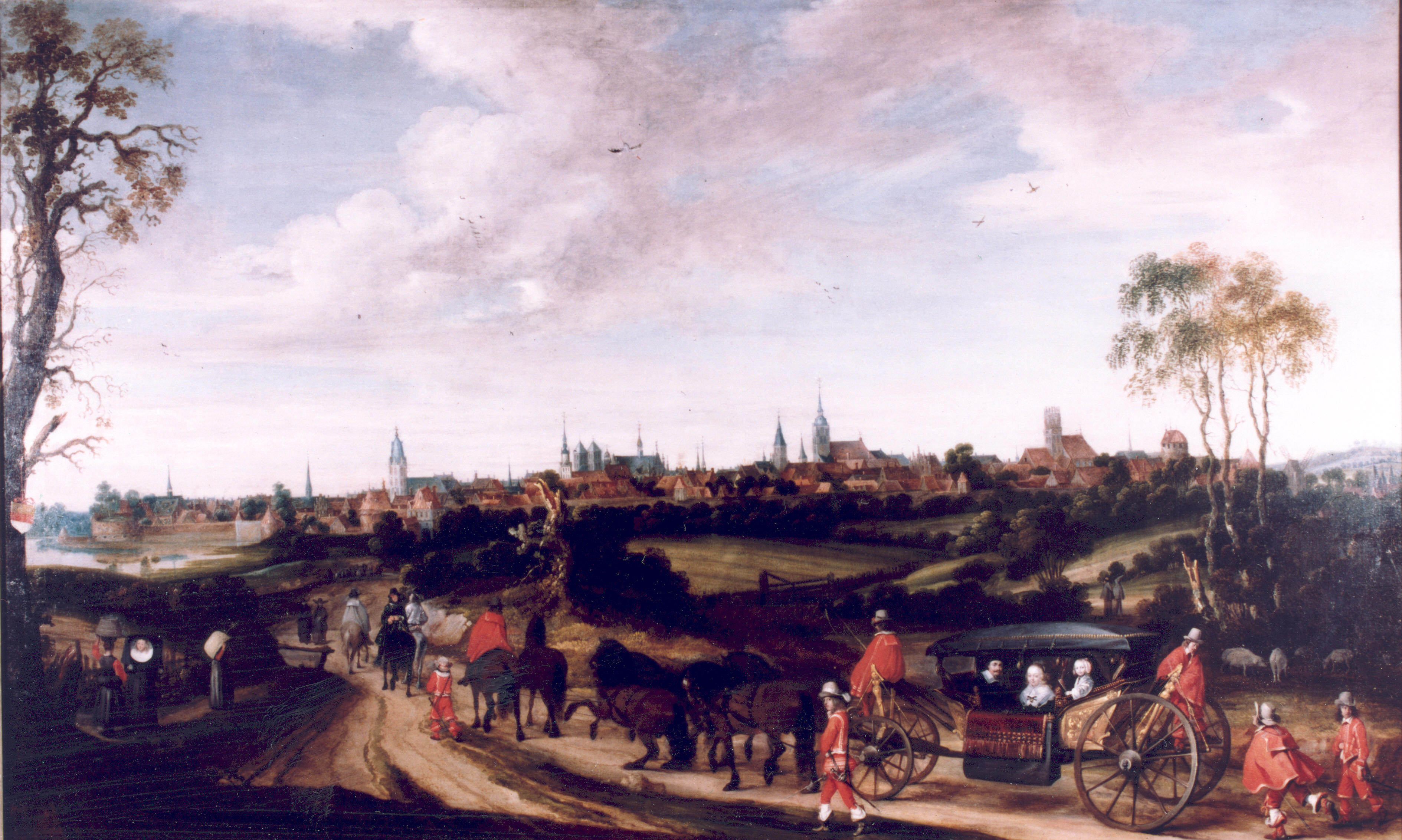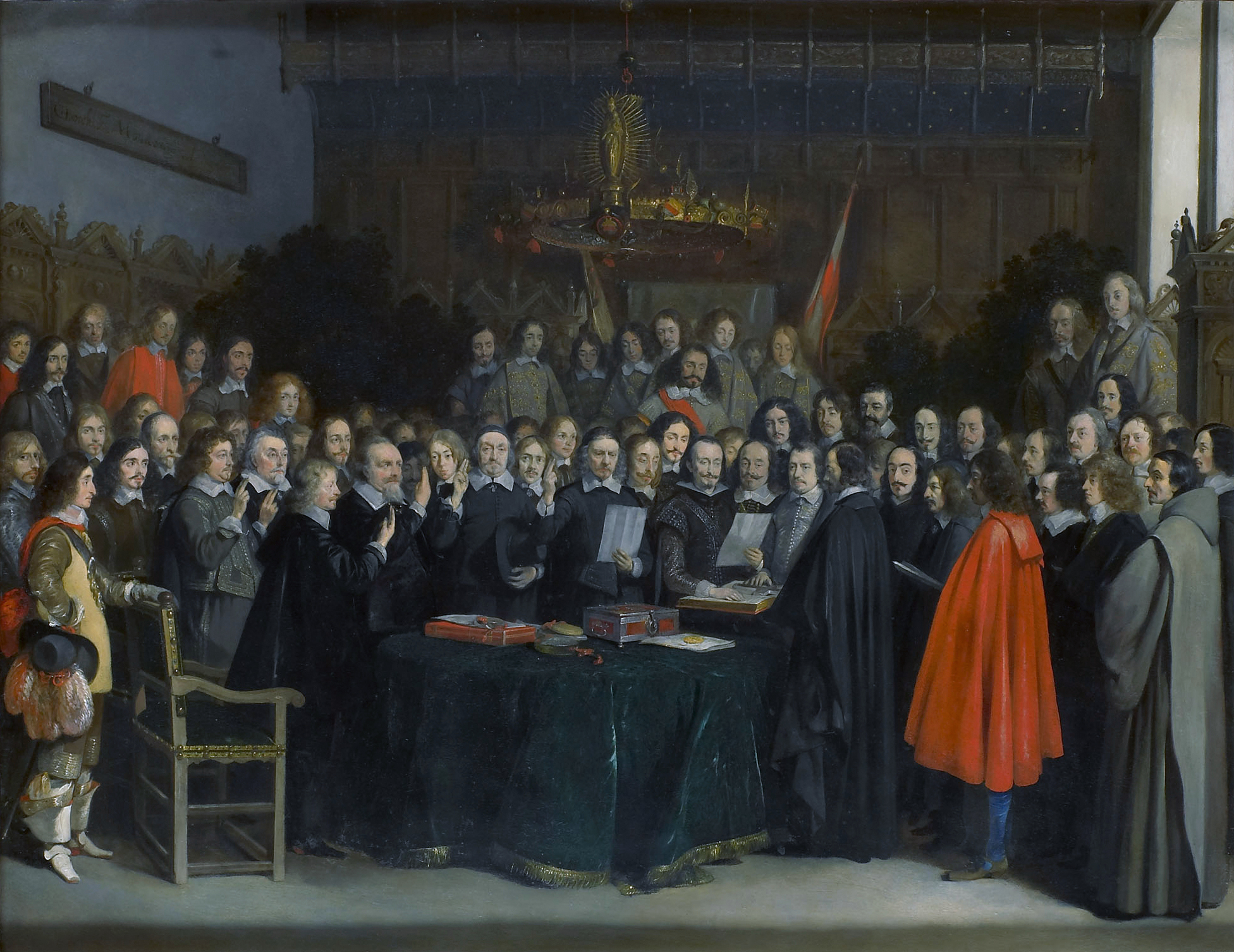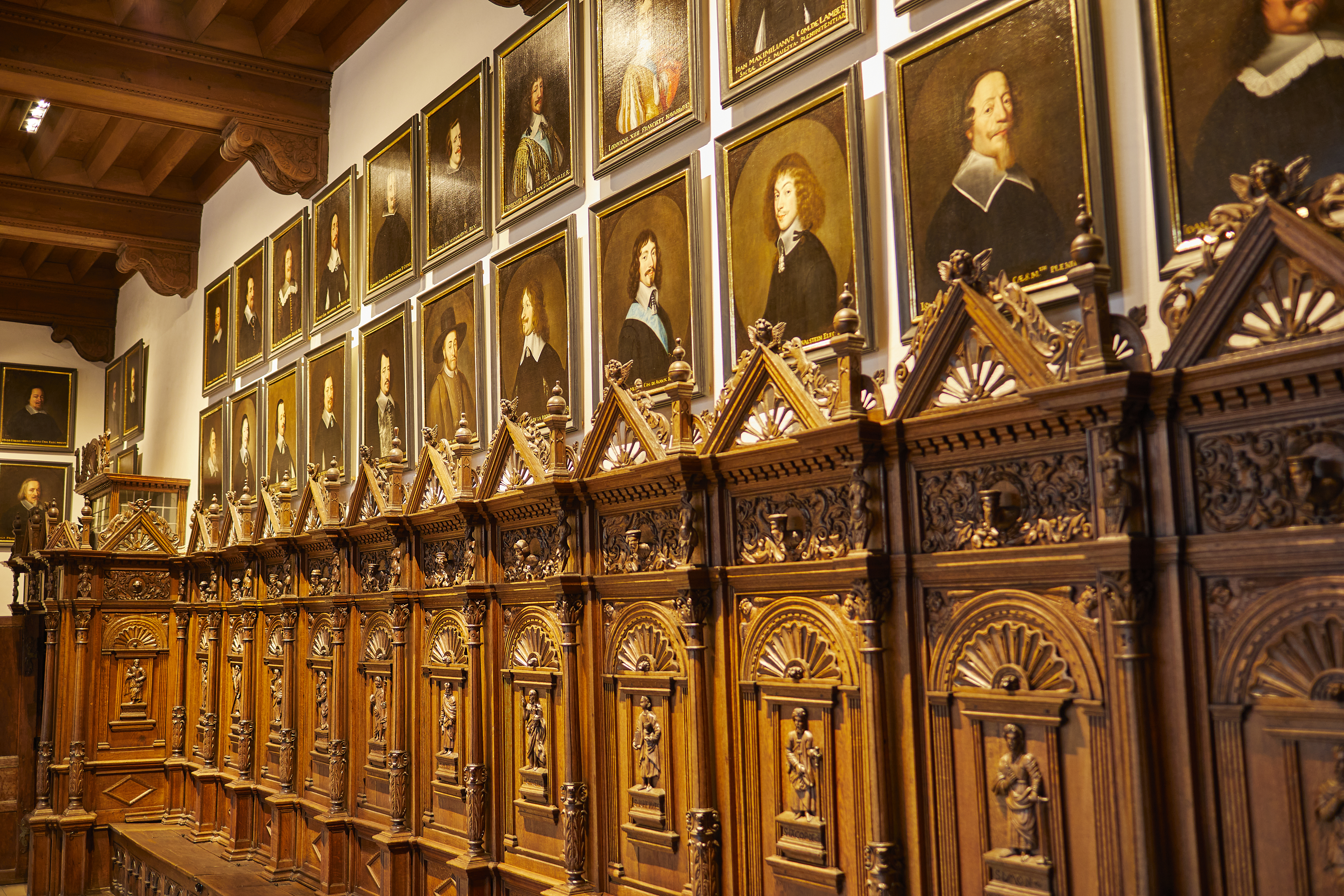What the Peace of Westphalia settled

In 1629, peace negotiations took place in Lübeck and later in 1635 in Prague, which unfortunately did not yield peace. This was likely due to the incomplete presence of the various parties. The eventual Peace of Westphalia was only achieved because all parties were involved in this first pan-European Peace Congress.
The peace treaties did not only establish peace but also brought along territorial changes. In addition to territorial concessions of the Holy Roman Empire to France and Sweden, two sovereign states emerged.
- Namely, the United Netherlands gained independence after the Eighty Years’ war against Spain, marking the “Vrede van Münster” as the birth of the Netherlands.
- In addition, the Swiss Confederation was founded by leaving the jurisdiction of the Imperial Federation and thereby becoming de facto independent.
„Westphalian System“
The Peace of Westphalia, through the re-organization of territorial structures, laid a foundation for international law and modern political principles such as sovereign states regardless of their power and size. Even today, political science, especially the realist school (Henry Kissinger), therefore speaks of the "Westphalian System". The guarantees of the great European powers allowed for stabilization of further development of Europe. The Peace of Westphalia, even up to the end of the 18th century, was referenced during negotiations of various subsequent peace treaties.
End of the religious dispute in the empire
The resolutions that came out of the Peace of Westphalia became core components of the constitutional order of the Holy Roman Empire, and remained in place until 1806. Additionally, the Peace of Westphalia ended the age of confessional and religious wars, which had been the foundation of many, if not all, bitter and bloody disputes and in turn let to the beginning of the Thirty Years’ war.
The Peace of Westphalia also brought recognition for the Reformed confession that now alongside the Catholic and Lutheran confessions was considered an equal. Even though the Protestants were a minority within the empire, a minority protection applied preventing a simply outvoting on religious issues by the bigger confessions at imperial congresses.
January 1st, 1624 was the cut off for the so-called “Normal Jahr”. Meaning that the material possessions as well as the religious rights of the three confessions as they were on January 1st, 1624 provided the basis for the peaceful understanding between them
Why the Peace of Westphalia is still admirable today

The consequences of the Peace of Westphalia can still be seen in current times. Perhaps more interestingly are the issues that needed to be resolved before hand. For example, the sheer size of the Peace Congress, as there had not been a similar size congress, as all actors wanted to be present. Münster and Osnabrück provide a stage for all of Europe, meaning that all eyes were on the Peace Congress that took place at these two cities.
A Peace congress of this magnitude also brought new questions along, such as; how to rank the participants, who among the emperor's war opponents should have protocol precedence at such a congress: The French king? Or the Swedish crown? How should a Catholic Spanish count speak to the heretical Calvinists of the Netherlands? And many others. ? The answers to such questions were not easy to find, but were at times amazingly creative.
Münster & Osnabrück
The Peace Congress was divided between Münster and Osnabrück. Reason for this was that these two cities were in a reasonable close proximity, while also accommodating the different parties religious values. In Osnabrück, the Protestants, led by their Protestant leader Sweden, negotiated with the emperor and the empire. In Münster, the empire conferred with the Catholics, i.e. the French and the Spanish, plus the envoys of the Netherlands, who had to deal specifically with the Spanish.

Mediators mediate
Special mediators were appointed to circumvent protocol issues between the various delegations. In Münster these were, the papal nuncio Fabio Chigi, whom later became pope Alexander VII, and Alvise Contarini, chief diplomat of the highly respected Republic of Venice, who had already been active in initiating the congress.
Only in exceptional cases, did the various envoys negotiate directly with one another. Rather, they handed over their written documents to one of the mediators that then brought those documents to the respective recipient(s).
Here, the Venetian mediator Contarini had a special role due to the fact that papal nuncio Chigi was strictly forbidden to directly communicate with the Dutch heretics. In order for the Dutch to send and receive documents, an additional step, involving Contarini, was implemented.
Protracted negotiations
The indirect communication and the fact that the German princes and potentates were not present in-person made the negotiations difficult. Every decision needed to be clarified by the courts in the home states prolonging the process significantly. Moreover, the latest messages coming from the battlefields did not aid the overall negotiations, as all parties involved tried to gain some form of military advantage. However, the hope was always settled in a positive outcome from the negotiations and thereby a peace based on agreement and understanding
The result
The long and intense negotiations concluded in a peace agreement that was founded in mutual understanding and contractual arrangements. Of course, some form of clashes based on personal interest remained but also these were settled subsequently. This was particularly true for religious issues. However, the strong foundation of the peace treaty allowed it to overcome these issues.
No longer was the basis to fight out religious truths, but rather having mechanisms in place that allowed for the peaceful co-existence of competing religious believes. A prime example of this was when the pope protested sharply against the peace agreement. He stated his disagreement because, from his point of view, the rights of the Catholics had been recklessly abandoned. This did not stop the Catholic parties from signing the agreement. A religious arbiter was no longer accepted in matters of war and peace.

